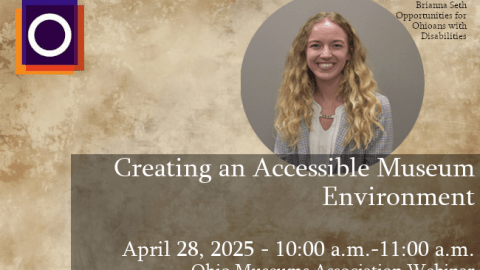A projection for the U.S., by 2030: Obesity prevalence will rise to ~50% in men between 45% and 52% in women. There will be: 7.8 million extra cases of diabetes; 6.8 million more cases of coronary heart disease and stroke; 539,000 additional cases of cancer. Annual spending on obesity-related diseases will rise by 13-16%, leading to 2.6% increase in national health spending. Total medical costs associated with treatment of these preventable diseases are estimated to increase by $48-66 billion/year. Can we do anything as a society to stem the tide? Maybe. Can museums help? The B.B. King Museum says “yes,” as reported by AAM intern Ella Mitchell.
The state of Mississippi is marked by an alarming distinction: it is the most obese state in the nation where 44% of children are obese or overweight. To much of the country, the statistics on obesity, as well as hypertension and diabetes, are just numbers, but Ann Shackelford, communications and development director at the B.B. King Museum and Delta Interpretive Center, explains that in Indianola, MS, and the entire Mississippi Delta, “We are living with these statistics every day, seeing them as people walking down the street.”
Where some may just see a problem, the B.B. King Museum instead found a natural way to be part of the solution to this obesity epidemic and other local issues by starting The Art of Living Smart, a seven-week summer day camp for children ages 6–15. During this time the kids engage in a variety of activities designed to teach them about healthy habits while also exposing them to the rich arts culture of the Mississippi Delta area. On any given day they might be playing traditional blues instruments, writing acrostic poems about music, practicing a new dance, making healthy smoothies, or exploring the history of their community through the museum’s exhibits.
As evidenced by these activities, the camp isn’t just about the physical health of the children; their overall well-being and the health of their community are also critical to the goals of The Art of Living Smart. To do this, the B.B. King Museum has capitalized on a strong local network including a national corporation, local non-profits and several regional universities. In this way the museum’s work benefits not only the campers, but also the surrounding communities. A grant from the Delta Health Alliance (DHA), made it possible for the camp to forge multiple local partnerships to support their work with the children. DHA is a nonprofit dedicated to community-based healthcare solutions, part of the Indianola Promise Community (an initiative connected with President Obama’s Promise Neighborhood program).
One of the most fruitful connections the museum made was with a dietetics professor and her students from Delta State University who helped design several aspects of the program. After planning nutrition lessons, the students, as well as some from Mississippi Valley State University, served as knowledgeable counselors. In the first year of the camp, all of the counselors had actually gone to high school in Indianola and thus served as great role models for the campers. The DHA grant made it possible for the museum to pay them. “That’s one of the things we were really proud of: that we were not only giving jobs to local young people, but they also had this opportunity to be mentors,” said Shackelford.
The camp’s program underwent numerous developments between its first and second years. “Last year when we started the program it didn’t have as big a connection to the exhibit as we would’ve liked, and we realized that we have some really natural ties between the camp and the museum,” said Shackelford. The museum decided to emphasize connections between the musical traditions the museum explores and corresponding dances, such as gospel music and praise dancing or the blues and juke joint dancing. The size of the program also dramatically increased. In 2010, the museum served 58 children but had over 200 on the waiting list. Shackelford remembers, “It just broke our hearts that there was this much interest and need and we couldn’t serve them.” Fortunately the camp was able to host both a morning and afternoon session this summer, enrolling over 125 children with hopes to expand even more in the summer of 2012.
The Art of Living Smart is not just a health boot camp, as evidenced by the variety of arts- as well as nutrition-focused activities. Nonetheless the kids are practicing healthy habits that carry over into their daily lives, even if it’s just in small ways like reading nutrition labels with their parents. The B.B. King Museum hopes the kids learn that taking care of their bodies is the only way they can live to be 86 years old just like Mr. King himself.
Interested in exploring what your museum can do to help your community with issues of food, health and nutrition? Join us for Feeding the Spirit, a national symposium being held in Pittsburgh on Oct. 13.
And consider joining the Let’s Move! Museums and Gardens initiative, which brings the fight against obesity in America to museums and gardens of all types. By signing up for the program, museums are part of a partnership not only with the White House, but also with a larger network of national associations and museums.
[inset-related-content]








